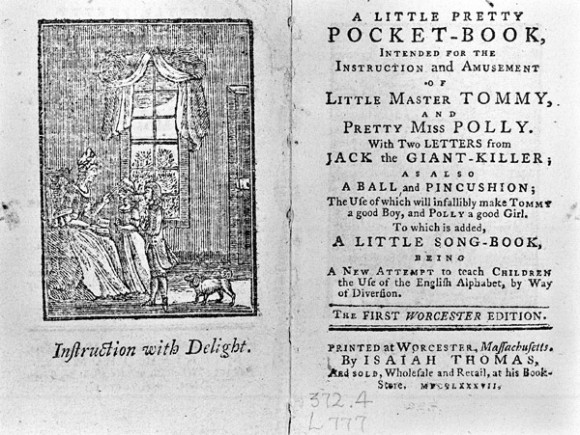What I like most about Keith’s post is that it asks precisely the right questions about how to best use an emerging medium in public outreach and education. Too often we can become fixated on new technology and try to use it as much as possible because it’s new, or because it seems able to fit (albeit often awkwardly) into an existing paradigm. Instead we should be thinking about how these technologies work, how they are changing our social habits, and develop our uses of them appropriately.

Children’s media has been trying to provide “instruction with delight” since we’ve had media content designated specifically for children. The celebrated children’s publisher John Newbery (called the “Father of Children’s Literature”) promised just this combination in A Little Pretty Pocket Book in 1744. But every medium has different properties, so understanding what kinds of delight a medium can afford is crucial to being able to make it educationally effective.
Continue reading Making the Most of the Medium: A Response